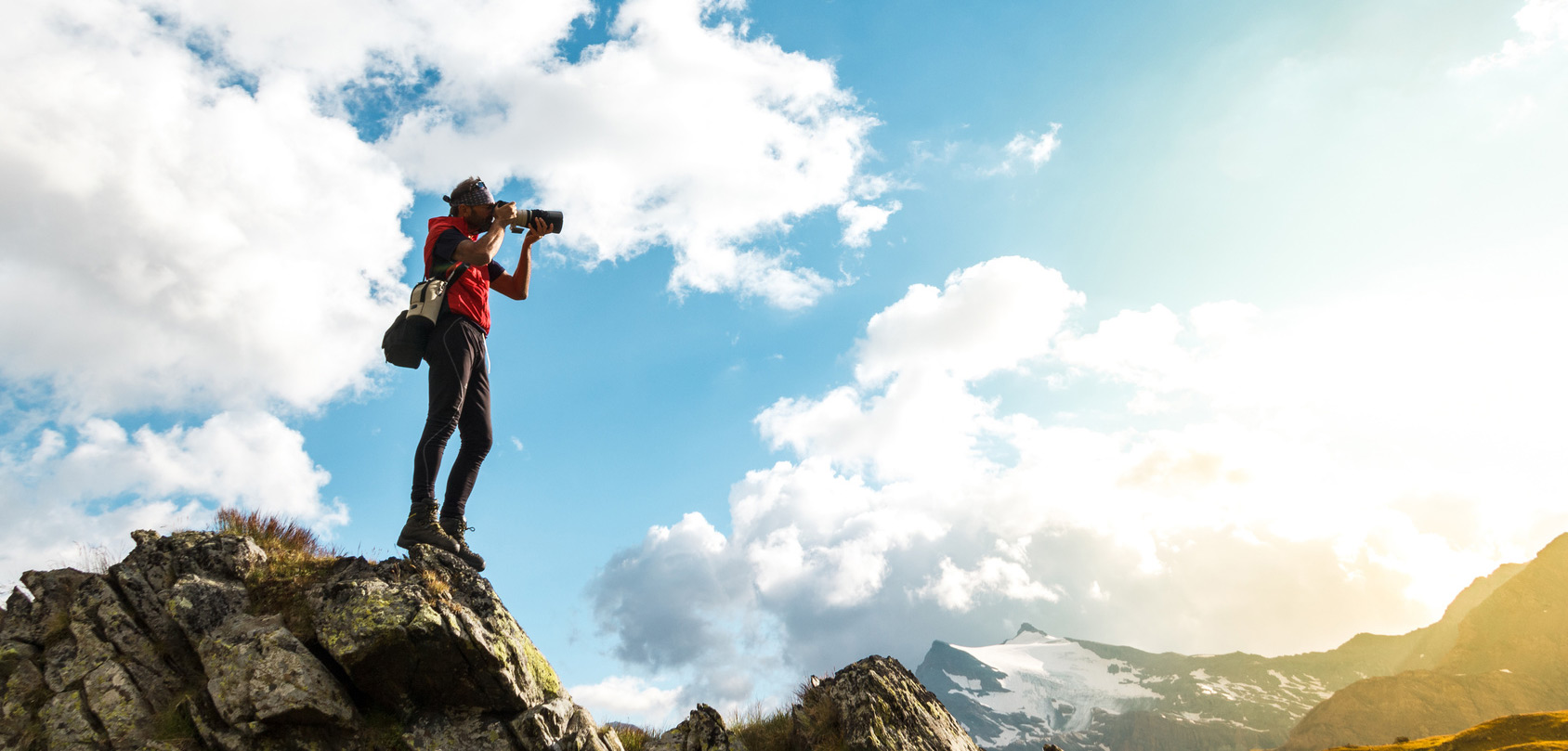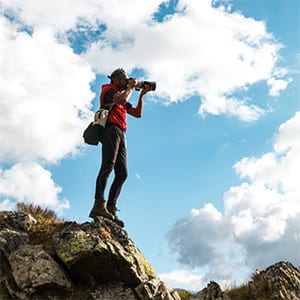Small Business Insurance Basics for Professional Photographers

You may have become a photographer because you’re creative and artistic. Now that you are a photographer, you also need to think like a professional and protect your growing business. Here’s what you need to know about your exposure to liability lawsuits, theft, fire and other risk factors along with the basics on photographer insurance policies that can protect you from loss.
What’s the Photographer’s Risk?
Unless you photograph extreme situations, chances are a lot of your work involves capturing people’s memories and special occasions. A small mistake on your part can mean a major disappointment for your client, with a strong letter and a liability claim to follow.
Let’s say you show up at the wrong place for the wedding shoot (who knew there were two First Methodist Churches on opposite sides of town?). Or somebody steals your camera with the film that chronicled the Brown’s 50th family reunion? Or maybe the hand model cut her ring finger on a prop at your studio, or your assistant took a nasty fall on a location shoot. Any or all of those things or something just as bad can and do happen to photographers every day.
If they haven’t happened to you yet, consider yourself fortunate…then consider how you would pay for the damages or losses. That’s where professional insurance for photographers comes in.
Photographer Insurance That Covers Your Business
1. Professional Liability Insurance (also called PLI, Errors & Omissions or E&O)
It is as essential to your photography business as your equipment. It covers mistakes you make on a shoot or in the studio, lost or stolen cameras, film or memory cards, scheduling snafus and similar mishaps that can result in claims of professional malpractice. Depending on your insurance company and the terms of your policy, your PLI may pay for all the expenses to reshoot (even location fees, tuxedo rental and fresh flowers), all legal fees to mount a defense, court costs and any judgment or settlement up to the amount of your policy. Do be aware that PLI policies are issued on a claims-made basis. They only cover incidents that happen and claims that are filed with your insurer while your policy is in force.
2. Commercial General Liability (also called general liability or GLI)
It is also a must-have. In fact, many venues will require that you carry it before they’ll allow you to shoot on their property. Your policy protects them from liability claims for any mishaps that occur while you’re conducting your business at their place. GLI pays the medical bills for bodily injuries that happen to your clients and anyone other than you or your employees during a shoot, whether it’s at your studio or on location. It will also cover any damages to the physical property of others under the same circumstances. Non-physical damage claims such as misleading advertising or personal injury resulting from invasion of privacy and copyright infringement are typically covered by GLI, too.
3. Commercial Property Insurance
Whether you rent your studio or own it outright (or work out of your home), you need property insurance to cover damage to your physical space and all your possessions and equipment. Your homeowners policy sets limits on what it will pay for personal possessions, often far less than what it would cost to replace it. If you don’t want a separate property policy for your home business, at least look into an endorsement on your homeowners or renters policy. Some property policies will also cover loss of earning coverage if your place of business is damaged or destroyed.
A BOP (business owners policy) packages GLI and PI together and can save you some money.
4. Commercial Vehicle Insurance
If you drive in the course of doing business, you’re going to need either commercial vehicle insurance or hire/non-owned auto liability. Commercial vehicle insurance covers any vehicle that you use primarily for business in the event of an accident, collision with property, damage from a natural disaster, theft and vandalism. If you occasionally use for business purposes a personal vehicle that is primarily for personal transportation, then look into hire/non-owned auto liability. It will cover damages from accidents and incidents that occur when you’re using that vehicle in the course of business. Note that your personal auto policy may void a claim if it can be shown that your were doing business when the damage or loss happened.
5. Workers Compensation Insurance
Do you have full-time or part-time employees? Then most states require that you also purchase workers compensation insurance that will pay for injuries that happen to them on the job.
Other Coverage to Consider
Inland Marine Insurance
It covers your professional equipment while it’s away from your studio. Your regular property insurance and commercial auto do not. Inland marine provides blanket coverage up to the amount of your policy for the replacement cost of cameras and other equipment.
Umbrella Insurance Policy
It boosts your GLI, PLI, commercial auto and some other policies, covering any gaps when a claim exceeds the limits of your primary policy.
Learn more about professional business insurance for your photography business and get competitive quotes here.

 EINSURANCE
EINSURANCE EINSURANCE
EINSURANCE  EINSURANCE
EINSURANCE  EINSURANCE
EINSURANCE